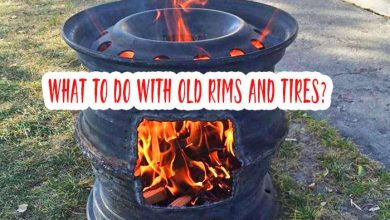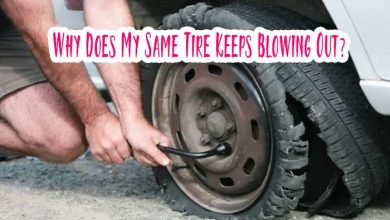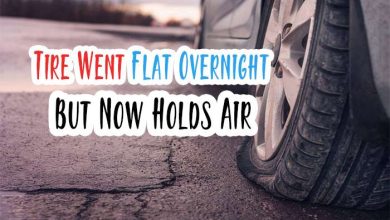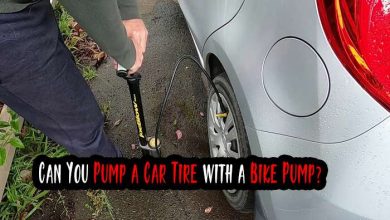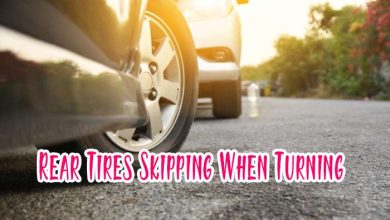Helicopter Noise After Tire Rotation | Fixing Helicopter Noise
Tires are like the unsung heroes of your vehicle. They bear the weight of your car, face all kinds of road conditions, and help you navigate smoothly.
But what happens when you hear a strange, almost helicopter-like noise after a tire rotation? As a tire expert, I’m here to clear the air and help you understand what might be causing this perplexing issue.
Understanding Tire Rotation
Tire rotation moves your vehicle’s tires to different positions to ensure they wear evenly. The primary goal is to extend the life of your tires and maintain optimal traction. It’s like rotating your mattress to ensure even wear and a comfortable night’s sleep.
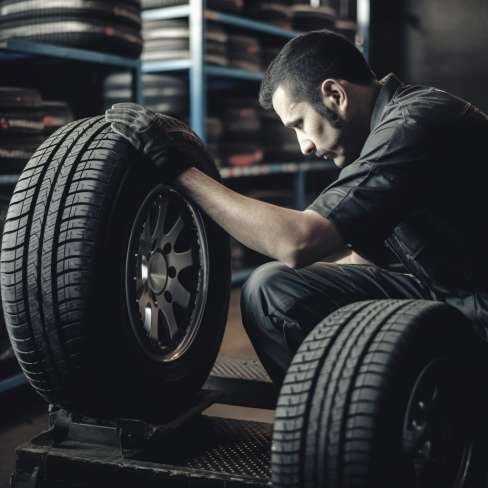
However, tire rotation isn’t a one-size-fits-all process. The pattern and frequency may vary depending on your vehicle type, whether front-wheel drive, rear-wheel drive, or all-wheel drive. To fully understand the causes of helicopter noise, you must understand how tire rotation works.
Signs of Helicopter Noise After Tire Rotation
Before we delve into the reasons behind the helicopter noise, let’s identify the common signs:
- Unusual Sound: The most apparent sign is the noise, ranging from a faint hum to a pronounced “chop, chop” sound like a helicopter hovering nearby.
- Vibration: You might feel vibrations through the steering wheel or the entire vehicle.
- Steering Issues: The noise may be accompanied by difficulty in steering, making your car feel less responsive.
- Uneven Tire Wear: If you notice uneven wear on your tires, it clearly indicates a problem.
Read Also: How Often Should You Get Your Tires Aligned?
Causes of helicopter noise after tire rotation
Now, let’s explore the root causes of that helicopter-like noise and how to address them.
1. Unbalanced tires:
Tires become unbalanced over time as they wear unevenly. This can cause a vibration in your wheels, leading to helicopter noise.
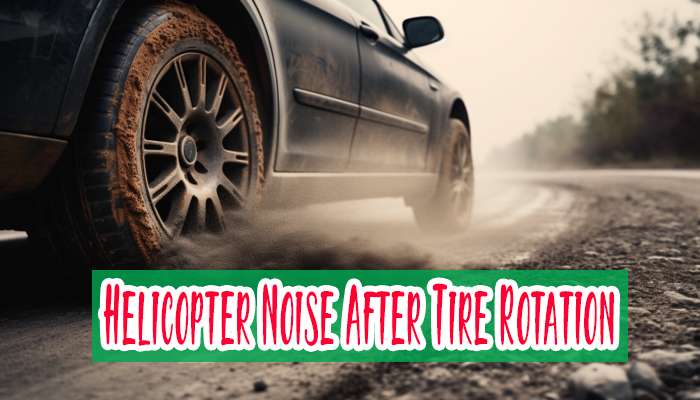
2. Uneven Tire Wear
Tire rotation aims to prevent uneven wear, but the noise can persist if it’s not done correctly or if your tires are already significantly worn. It’s crucial to inspect your tires regularly and replace them when needed.
3. Suspension Issues
Your vehicle’s suspension system is critical in how your tires interact with the road. Issues with the suspension can lead to uneven tire wear and helicopter noise. Ensure your suspension components are in good condition and get them inspected by a professional if needed.
4. Wheel Alignment Problems
Incorrect wheel alignment can cause tires to wear unevenly, which, in turn, leads to the dreaded noise. Regular wheel alignments can prevent this issue.
5. Tire Tread Patterns
Different tires have varying tread patterns. If your tires have mismatched tread patterns, they can create noise as they move. When replacing your tires, make sure to choose ones with a uniform tread pattern.
6. Low-Quality Tires
Low-quality or poorly manufactured tires are more prone to creating noise. Opt for reputable brands and models to minimize this problem when selecting new tires.
7. Incorrect Tire Inflation
One common reason for the noise is incorrect tire pressure. Over-inflated or under-inflated tires can cause uneven wear patterns, leading to the “helicopter” noise. Make sure to maintain the recommended tire pressure, which you can find in your vehicle’s owner’s manual or on a sticker inside the driver’s door.
Read More:
Why Does My Same Tire Keeps Blowing Out?
Tire Maintenance
Preventive maintenance is key to reducing helicopter noise after a tire rotation. Here are some essential tips:
- Regularly inspect your tires for signs of wear and tear.
- Maintain proper tire pressure.
- Ensure your wheels are correctly aligned.
- Invest in high-quality tires with uniform tread patterns.
- Stay on top of your vehicle’s suspension system maintenance.
By following these guidelines, you can enjoy a smooth and noise-free ride.
Frequently Asked Questions
What causes helicopter noise after a tire rotation?
Helicopter noise often results from uneven tire wear, which can be caused by factors like incorrect tire pressure, suspension issues, and poor alignment. It’s essential to maintain proper tire care to prevent this noise.
Is helicopter noise dangerous for my vehicle?
While helicopter noise isn’t dangerous, it’s a symptom of underlying tire or vehicle issues. Ignoring it can lead to uneven tire wear and affect your car’s performance and safety.
Can I drive with helicopter noise temporarily?
You can, but it’s not advisable. Helicopter noise is a sign of potential tire and vehicle problems, and continuing to drive with this noise can exacerbate these issues. It’s best to address the root causes promptly.
How much does it cost to fix helicopter noise?
The cost of fixing helicopter noise varies depending on the underlying problem. It can range from a simple tire pressure adjustment to more extensive suspension or alignment repairs. It’s best to consult with a professional for a precise estimate.
Are there any home remedies for reducing helicopter noise?
There are no home remedies for eliminating helicopter noise. It’s crucial to address the root causes by maintaining proper tire care, including correct tire pressure, alignment, and suspension system maintenance.
How can I prevent helicopter noise in the future?
To prevent helicopter noise, regularly inspect your tires, maintain proper tire pressure, ensure correct wheel alignment, invest in high-quality tires, and keep your vehicle’s suspension system in good condition.
Conclusion
Helicopter noise after a tire rotation can be perplexing, but understanding the causes and following proper maintenance procedures can help you enjoy a smooth, quiet ride. Maintaining your tires, checking for uneven wear, and promptly addressing any issues will keep the “chop, chop” sounds at bay. Safe travels!
Reference Link
https://calrecycle.ca.gov/tires/info/justcheckit/tips/
Glossary
- Tire Rotation: The process of moving your vehicle’s tires to different positions to ensure even wear.
- Suspension System: The components of a vehicle that support its weight, absorb shocks, and ensure smooth handling.
- Wheel Alignment: Adjusting a vehicle’s wheels to ensure they are parallel to each other and perpendicular to the ground, optimizing tire wear and vehicle handling.
